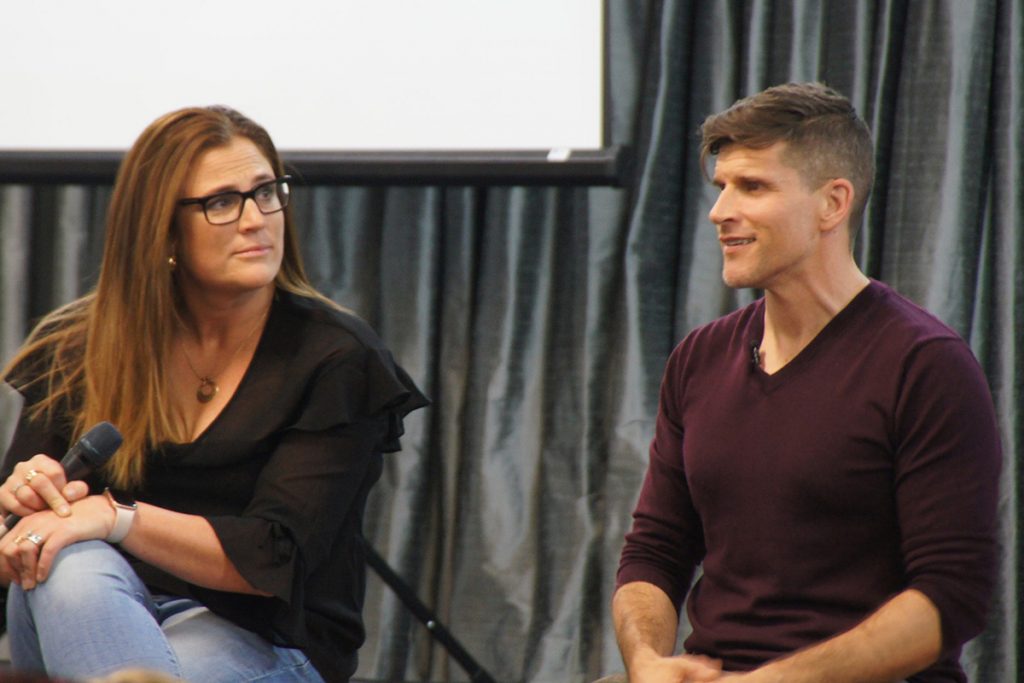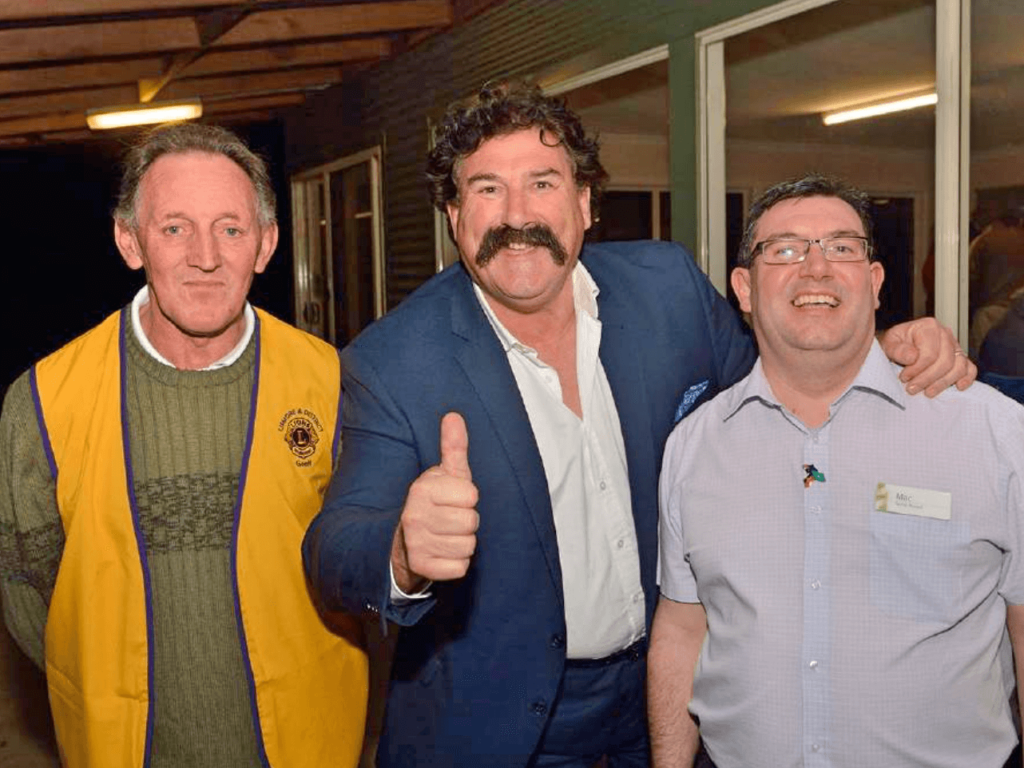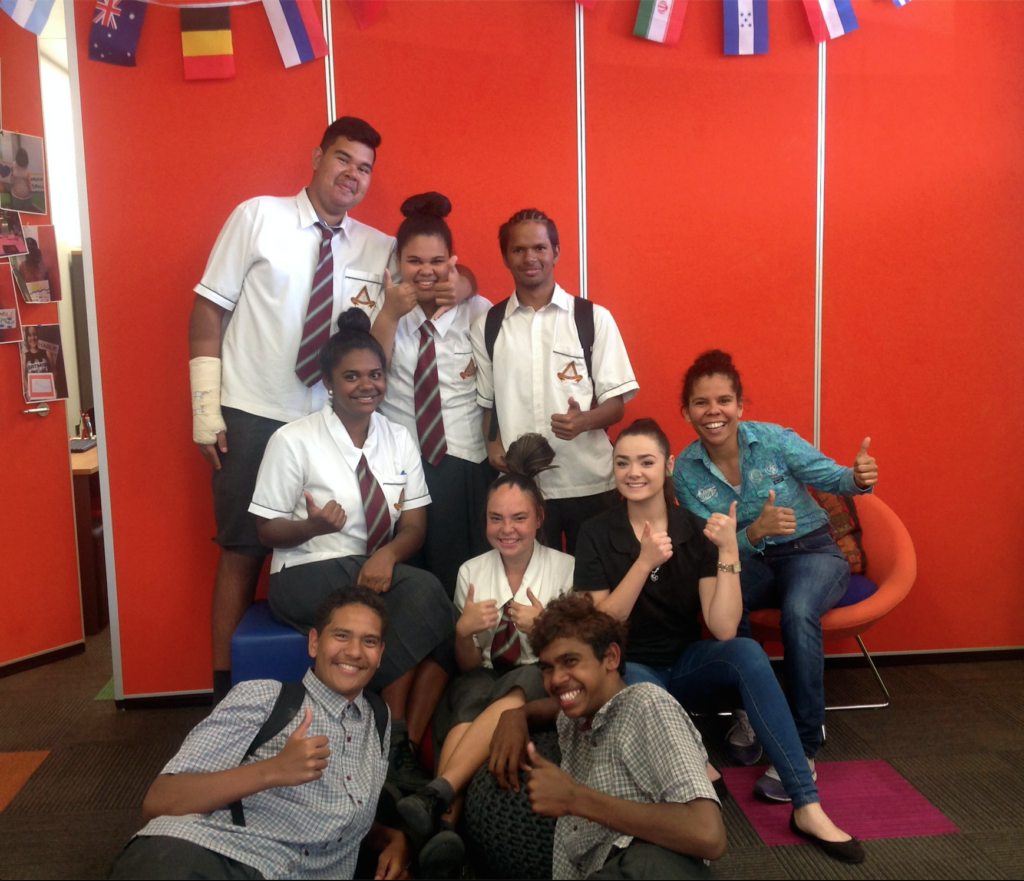Foundation for Rural & Regional Renewal (FRRR)

Robinvale is a small, rural and remote community on the Victorian border situated between Swan Hill and Mildura. With a population of around 8,000 people, the entire area is part of the Victorian food bowl, and the main businesses are agribusiness and horticulture. As a result, there is a relatively large section of the community that is seasonal and transient. Demographically, about 70% of the community is of CALD background.
The Robinvale Network House is committed to empowering community and individuals through a range of educational and community capacity building programs to meet the needs of the local community. Robinvale Network House’s Coordinator, Carolyn Martinussen, explained that people in Robinvale are generally supportive of each other, however there are high levels of stigma surrounding mental health and/or alcohol and other drugs (AOD).
“In a small community, the ripple effect of a person and / or family hurting through mental health, AOD or suicide is devastating – many of us know the person and / or their family. For the most part, people are supportive of each other, however, this can change if the stigma of mental health and / or AOD is present,” she said.
This, combined with the element of shame and lack of knowledge about where or how to access services, was becoming an increasing issue in the community. Following several suicides, the community decided it was time to proactively address these issues.
To assist in continuing the conversation, and to complement and promote available services, Robinvale Network House planned the Be SAFE Mental Health Forum. It would refocus on a range of issues about mental health, AOD and suicide, aiming to decrease the stigma on each topic.
Through FRRR’s In a Good Place program, funded by CCI Giving, they secured funds to have celebrity Osher Gunsberg speak about his struggle with mental illness. The aim was to encourage the community to speak up and be part of the conversation surrounding mental health and AOD issues. Representatives from headspace also attended and answered questions from attendees, while allied health staff from Robinvale District Health Services handed out brochures from other agencies detailing their services and contact details.
The response to the Be SAFE Mental Health Forum was positive, with around 200 people from Robinvale, Euston, Mildura, Balranald and Swan Hill turning out to hear Osher speak of his life living with mental health problems. While Osher’s story was certainly informative and relevant, Carolyn Martinussen said that the most valuable part of the evening was the unscripted questions from the floor, which lasted for an hour.
“I’ve been in my role for 19.5 years and have organised many projects and programs in that time. Almost every person present came up to me to thank me for organising this event. [The Chairman of Robinvale Network House], who was attending a suicide prevention conference in Hobart, rang me at 7am the next morning [and said] his social media feed was full of comments about the event”.
Ms Martinussen said that someone received a text message from a mate the day after the event. His mate was in crisis but because he had seen and listened to Osher the night before, he felt he knew how to help and could be there for his mate when he needed it the most. Be SAFE was an example of how members in small communities all pitch in to make things happen.
Council donated the use of the Community Centre and provided an AV technician to oversee sound and video on the night; volunteers set up the venue, even the local primary school stepped in with a data projector.
There was no marketing budget for the event, however flyers were produced and circulated, and social media was put to very good use. The event received excellent coverage from the local media outlets – Sunraysia Daily, local ABC Breakfast radio, and a podcast where local Councillor Jade Benham interviewed Osher on The Vale Podcast “Conversations in Cars” recorded on the trip from Mildura to Robinvale for the event.
Osher himself posted on his social media about the event and the Robinvale area:
“What a night we had in Robinvale, last night. Thank you everyone who drove so far to come to hear me speak. I was so grateful to speak about Mental Health here, and thanks for a superb Q&A afterwards, also it was cracking to meet everyone. Massive gratitude to the team that brought me out here, Sue & Carolyn – and Jade from The Vale Podcast for the great chat.”
Osher Gunsberg
Two prominent local men and their partners, all of whom were there on the night, also appeared on The Vale Podcast “Bringing it home”, candidly discussing depression, attempted suicide, self-medicating, the need to speak up and the caring role of partners.
Since the event, there has been an increased uptake of local Mental Health First Aid training, the local pharmacist reports an increase in mental health related prescriptions being presented, and people have commented that they are using a breathing technique that Osher demonstrated on the night.
Mallacoota, in south-east Victoria is an isolated, remote and ageing community with poor transport links. While its official population is around 600, that swells to closer to 7,000 during Summer, which puts a lot of pressure on local infrastructure, including medical services.
It had got to the stage where the one remaining GP was ready to leave town – but before she did, she called a community meeting. She shared the challenges that she was facing, and the community was determined not to see her leave.
So they bought the clinic – and then set about finding doctors to come and live in their lovely part of the world.
But it didn’t all happen quite that easily.
One of the driving forces was Robin Bryant, who shared the community’s story at a Rural and Regional Funder Group meeting in Melbourne in September.
“CHIRF was launched following a community meeting called by Mallacoota’s then sole GP in April 2016, Dr Sara Renwick-Lau who outlined the challenges faced by a small medical practice in a very remote community. Following that meeting two key activities were activated; the first, a Doctor Search committee was formed with the goal of increasing the number of doctors in the community; and secondly, a fund-raising committee was formed and tasked with improving the equipment and facilities in the medical centre,” Robin explained.
A long-held aim of this resilient community was to build its own aged care facility – and Mallacoota Inlet Aged Care (MIAC) had been fundraising for it for some time. But they agreed that a good GP clinic was more important, so they put the funds raised toward helping to purchase the clinic,
The community created another body to own the facility – the Mallacoota Community Health Infrastructure and Resilience Fund (CHIRF).
“We joined forces with MIAC in a number of co-funding activities specifically for improving the equipment and facilities in the medical centre. With their funds we were able to purchase the medical centre as well as some medical equipment including a generator.
“As with the medical clinic and all our purchases, they remain a community asset and is used by the medical practice to improve medical outcomes in the community.
“Over the last couple of years we have partnered with philanthropy to help us address our community needs and provide a sustainable health service.
“We have just received a $136,864 grant through FRRR to support the development and implementation of additional health services through the clinic including a mental health program, better Allied Health coordination, and maintaining the Dr Search workforce recruitment program.”
We can’t wait to see what this community does next! That aged care facility looks almost a certainty with such a committed group of people determined to make it happen.

The milk pricing crisis in south west Victoria affected many local dairy farmers and community members. In agriculture industries, rural isolation can add to poor mental health issues, especially as farming becomes more mechanised.
In 2016, South West Healthcare received a grant for $3,635 from the Gardiner Dairy Foundation Working in Dairy Communities Small Grants program to support the local dairy farming community by offering Mental Health First Aid (MHFA) training and accreditation.
The uptake exceeded expectations – and the MHFA training was delivered to 133 individuals over the space of seven months.
The local people who attended MHFA training sessions represented a community-wide spread – from teachers to disability support workers; farming field officers to spouses of dairy farmers; general community members to industry relevant company individuals.
The ‘Are You Right Mate?’ event was held at the Lismore football clubrooms, with guest speaker Robert ‘Dipper’ DiPierdomenico headlining the night. The aim of the night was to invite people, in particular men, from the local communities to come together in a social setting and look out for themselves and the communities they support. They could meet Dipper, have a chat and a free BBQ with their mates.
Over 120 local men attend the event and the informal environment was a great way to highlight that it is okay to not be okay, and how important it is to look out for one another.
At the conclusion of the Mental Health First Aid course, 100% of participants gave feedback that they now had confidence in their ability to recognise and respond to people who were experiencing mental health distress or crisis. Many participants also reported that they felt confident that they could discuss mental health with other people in their community.
Overall, the positive feedback from MHFA training participants indicated that more MHFA training, for both youth and adults, is wanted by the community. There were even 40 people on a waitlist to attend the training This is a great sign that rural people are ready and willing to talk about mental health, and to support their mates.

“This project was driven and supported by young people every step of the way.”
Since Junior Mayor of Mt Isa and 2015 Heywire Youth Representative, Justice King, helped secure a $10,000 Heywire Youth Innovation Grant, a group of Mt Isa youth have been part of a program that has helped them to share stories of mental health, learn film-making skills, and ‘roll out the red carpet Mt Isa style’.
Kicked off in September 2015 at the Mt Isa Centre for Rural and Remote Health, the Raise Your Cards project included running four days of Digital Storytelling workshops for 19 young people. Professionals were brought in to help them develop skills in storytelling, scriptwriting, storyboarding, basic camera work and film making, film editing and sharing, communication, planning and team work. A young group ‘We Are One’ led the program throughout the application process and program design, while tapping into local Justice King, who chaired meetings and was actively involved along the way. Other support came from Vincent McManus of CuriousWorks, Chris Doyle and Jacqueline Olley of Headspace Mount Isa , James Cook University , Leann Shaw, Community Yarning Circles and Alvin Hava Young People Ahead, Youth and Community Services Inc.
‘Raising cards’ raises confidence
Stephanie King, one of the project coordinators from the Mount Isa Centre for Rural and Remote Health, told of her excitement for the group’s opportunity to learn. “This has a flow on effect for their self- confidence and for what they would like to be and their future aspirations as young leaders in our community.” She said one young participant commented that “It was the most awesome thing I have ever done.”
“All 12 young people were super keen and excited to play their part, the young ones even turned up extra early on their school holidays and put in a mighty effort to produce some really amazing scenes.”
Flexible workshop delivery enabled the project to take different directions. Reducing stigma around youth and mental help isn’t easy and is often a difficult subject to broach for youth, especially with the end result being broadcasting of personal stories. The young group decided they wanted to make a joint film and worked collaboratively on a script that would include everyone. The result: Straight Outta Isa (WATCH). One girl, Sophie, took another approach and used whiteboard animation to tell her story.
The workshops culminated in sharing the stories through online channels and the team organised a free community screening night on October 9th 2015 to coincide with mental Health Week. It was attended by almost 100 people.
Ms Justice King commented for an ABC article that she was overwhelmed by how much the young people were willing to share at the workshop.
“With my experience, especially with youth of their age, they’re usually very enclosed in themselves and don’t talk,” she said. “It really did launch us out of the water, it was so surprising that they were open to discussion.
“It really shows that we’re exiting the era where discussing bad topics as youth [is taboo].”

